Lee Hye-kyung found her teenage son’s body a little more than two weeks after a South Korean ferry that was carrying him and more than 400 people sank off of the southern coast of the country. The ferry, “Sewol,” went down with more than 300 people, including 250 high school students.
“Hyeon-tak, thank you for the life you spent with me,” Lee said, standing in her son’s bedroom that remains untouched even after nearly one year since he’s been gone.
Even after a year, the traumatized country is still trying to cope with the enduring scar of the April 16, 2014, disaster. Many grieving parents and relatives of the young victims kept their kids’ rooms just as they had left it, unable to move on from the traces and memories of their beloved.
“Hyeon-tak’s body was discovered on May 1. How could I say even a word in front of such a deep sorrow? I don’t have any passion for my life. I raised him with all my heart. Hyeon-tak, thank you for the life you spent with me.” — Lee Hye-kyung, mother of Jeon Hyeon-tak
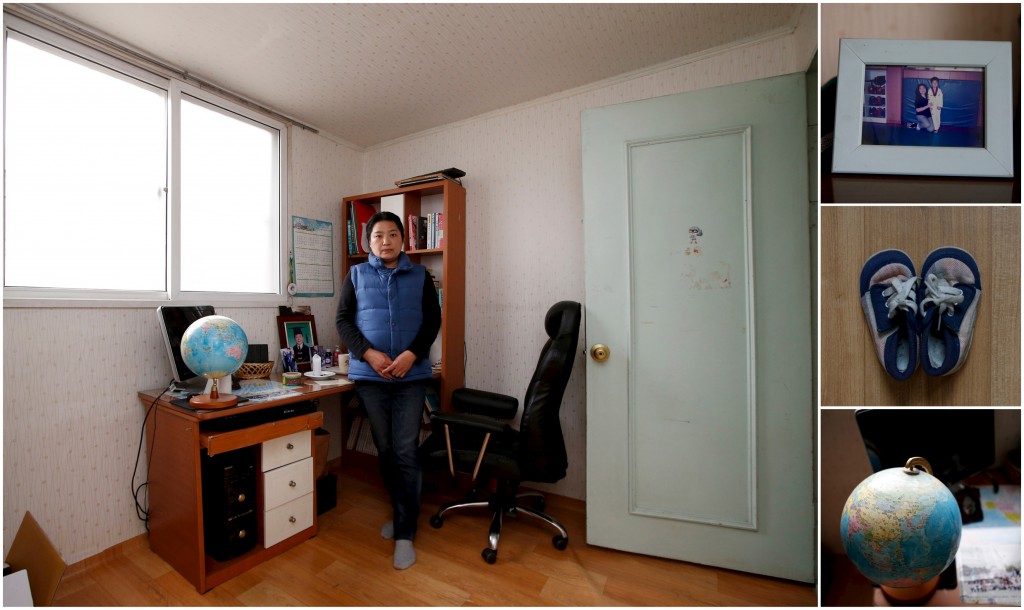
A combination picture shows Lee Hye-kyung, mother of Jeon Hyeon-tak, a high school student who died in the Sewol ferry disaster, as she poses for a photograph in her son’s room, as well as details of objects, in Ansan April 8, 2015. Photo by Kim Hong-Ji/Reuters
Prosecutors later found that the ferry had been routinely overloaded amid structure problems — it was carrying twice its legal limit of cargo at the time — and inspectors had been sloppy with regulations and there had been a long history of corruption in the shipping industry itself. As the ship sank, rescue operations were slow and unorganized; everyone was ordered to stay in their rooms, ultimately drawing a sharp criticism to the Korean government and its coast guard. Families of Sewol victims have been demanding the government to launch a more thorough investigation of the disaster and continue the search process for nine missing bodies of the victims.
“Before the accident, my family talked a lot. Now we save our words, trying not to hurt each other. I am eager to see Hwi-beom just once. I wish I could hug him.” — Shin Jum-ja, mother of Jung Hwi-beom
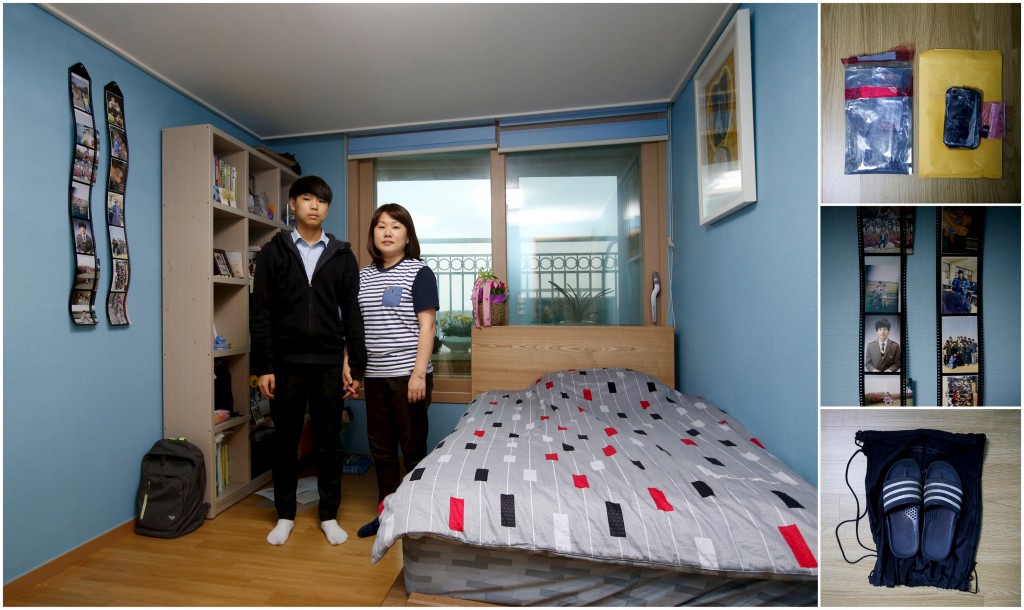
Shin Jum-ja, mother on the right, and Jung Soo-beom, younger brother on the left, of Jung Hwi-beom, a high school student who died in the Sewol ferry disaster, pose for a photograph in Shin’s son’s room, as well as details of objects, in Ansan April 7, 2015. Photo by Kim Hong-Ji/Reuters
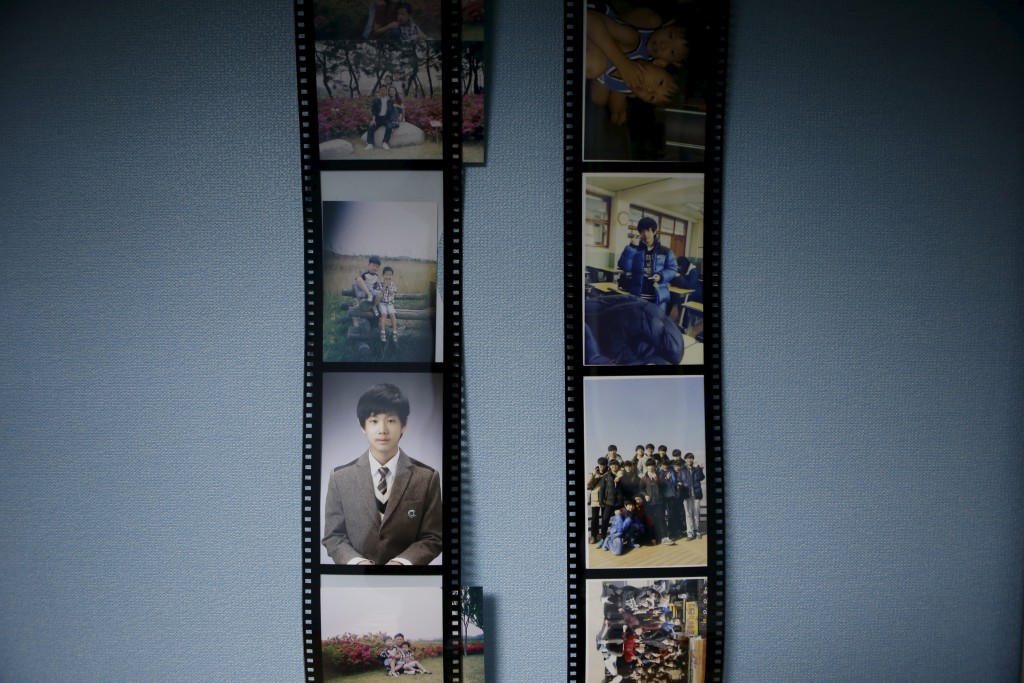
Pictures hang in the bedroom of Jung Hwi-beom. His dream was to be a car designer. Photo by Kim Hong-Ji/Reuters
“My perspective on my country has changed. I thought my country was good. I prayed for it. However, after the disaster, I could not pray for a while.” — Ahn Myeong-mi, mother of Moon Ji-sung
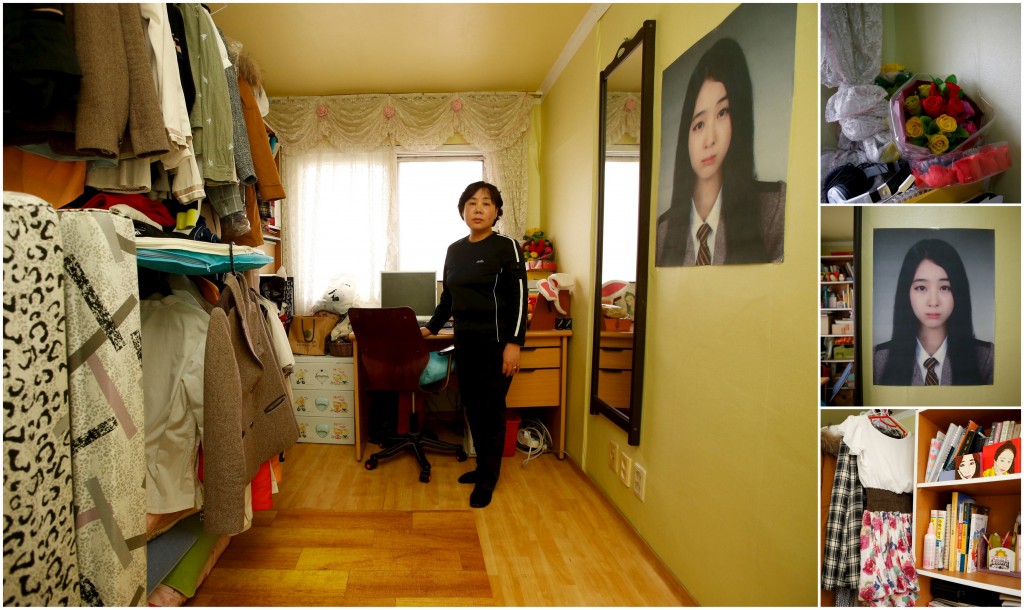
A combination picture shows Ahn Myeong-mi, mother of Moon Ji-sung, a high school student who died in the Sewol ferry disaster as she poses for a photograph in her daughter’s room as well as details of objects, in Ansan April 7, 2015. Photo by Kim Hong-Ji/Reuters
“I wish our country could make us feel like it is protecting us. I want to tell Ha-yeong’s younger sister about my proud country but I can’t these days. We, as adults, have a duty to protect our children.” — Kim Yu-jeong, mother of Jeon Ha-yeong
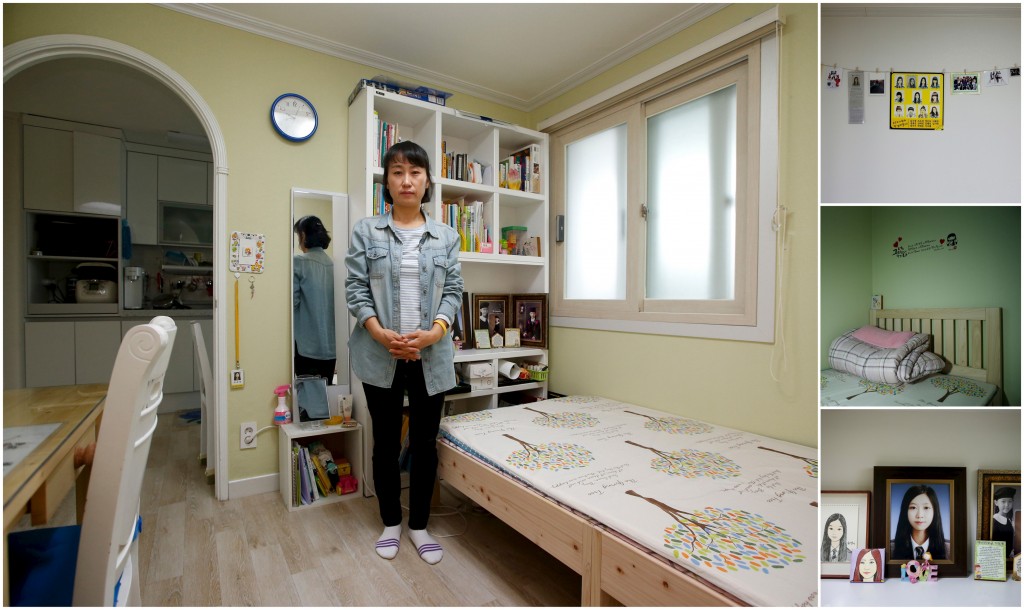
Kim Yu-jeong, mother of Jeon Ha-yeong, a high school student who died in the Sewol ferry disaster, poses for a photograph in her daughter’s room, as well as details of objects, in Ansan April 7, 2015. Kim expressed frustration with South Korea for the disaster, but she said, “I hope our children grow up well and lead our country in a right direction.” Photo by Kim Hong-Ji/Reuters
“I feel so sorry for Cha-woong and miss him so much. Those children who stayed calm in the ferry at the last moment and worried for us were better than us. I dont have confidence in my country any more. I want to move abroad, if my oldest child feels okay with it.” — Kim Youn-sil, mother of Jeong Cha-woong
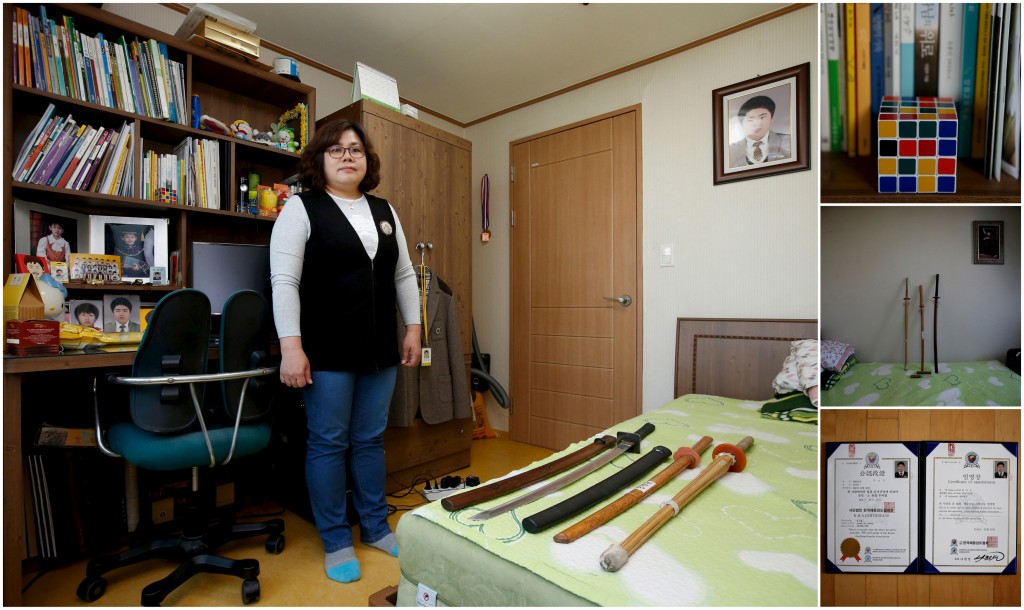
Kim Youn-sil, mother of Jeong Cha-woong, a high school student who died in the Sewol ferry disaster, poses for a photograph in her son’s room, as well as details of objects, in Ansan April 8, 2015. Photo by Kim Hong-Ji/Reuters
“Spring has come and flowers are blossoming, but moms cannot smile. I hope the children who are still missing will be found … I wish I could bring back my daughter. The world after the tragedy is not the place that I had known.” — Lee Sun-mi, mother of Kim Ju-hee
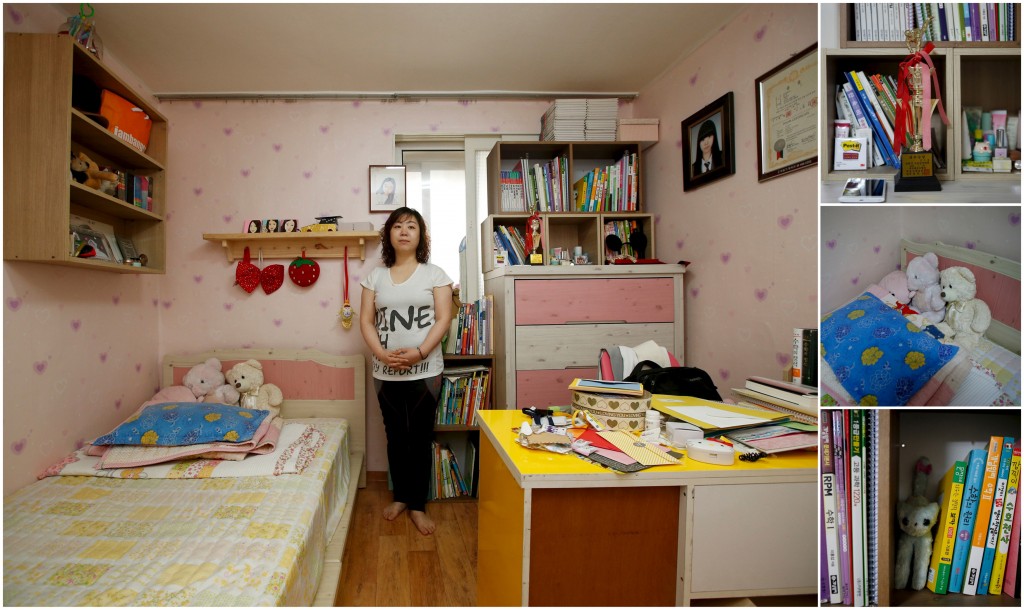
Lee Sun-mi, mother of Kim Ju-hee, a high school student who died in the Sewol ferry disaster, poses for a photograph in her daughter’s room, as well as details of objects, in Ansan April 8, 2015. Photo by Kim Hong-Ji/Reuters
“As I see the children, they are all pretty and precious. All of them have a right to be loved and have dreams. Losing these kids is a tremendous loss for our country.” — Kim Mi-hwa, mother of Bin Ha-yong
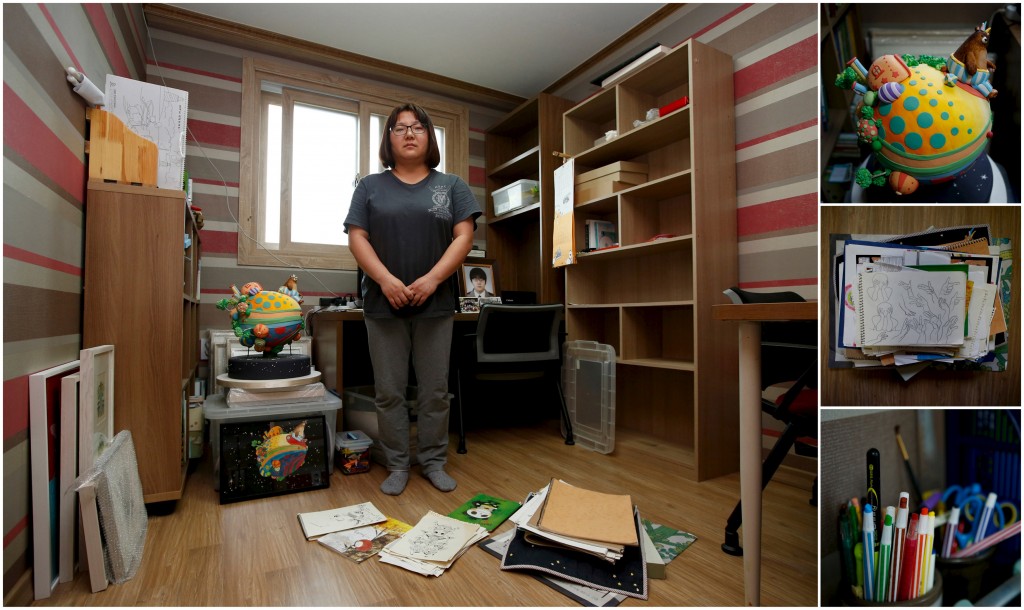
A combination picture shows Kim Mi-hwa, mother of Bin Ha-yong, a high school student who died in the Sewol ferry disaster, as she poses for a photograph in her son’s room, as well as details of objects, in Ansan April 7, 2015. Photo by Kim Hong-Ji/Reuters
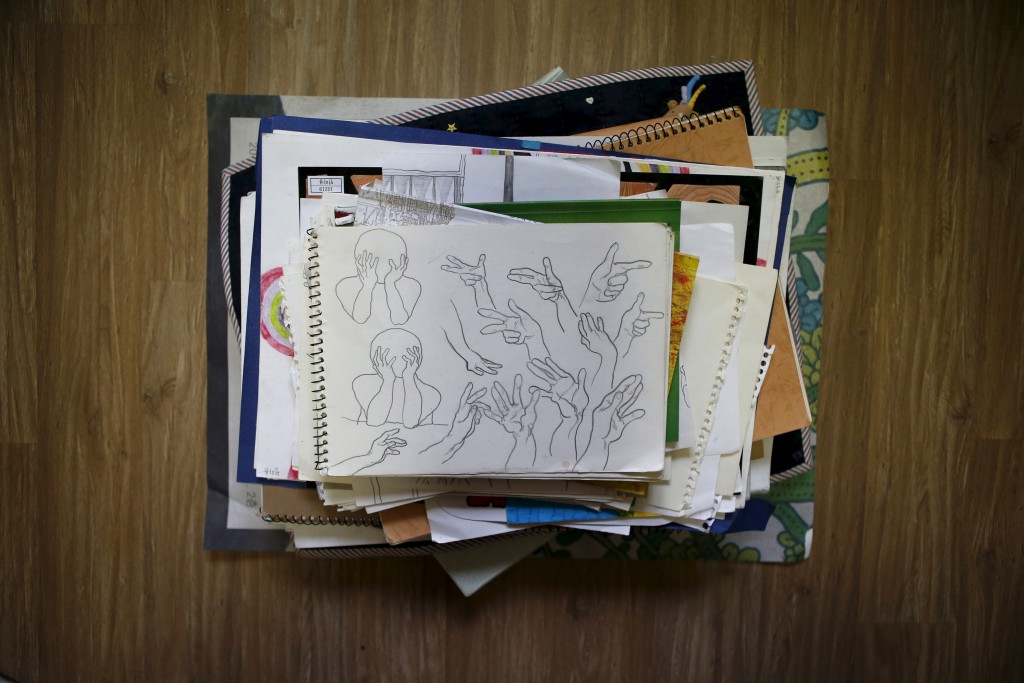
Drawings are piled up in a room belonging to Bin Ha-yong, a high school student who died in the Sewol ferry disaster, in Ansan April 7, 2015. His dream was to be an illustrator. Photo by Kim Hong-Ji/Reuters
“A thorough investigation is needed, and wrongdoers should be punished. This kind of accident might happen again if we don’t know why it happened.” — Kim Young-lae, father of Kim Dong-hyuk
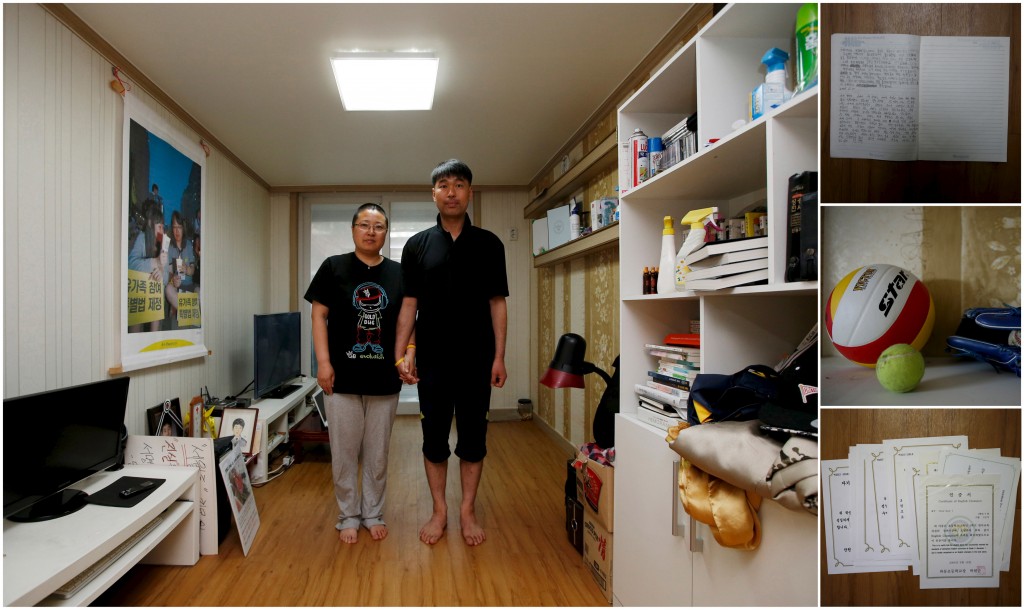
Kim Sung-sil and Kim Young-lae, parents of Kim Dong-hyuk, a high school student who died in the Sewol ferry disaster, pose for a photograph in their son’s room, as well as details of objects, in Ansan April 8, 2015. Photo by Kim Hong-Ji/Reuters
“I was protesting, asking for an inquiry to find out the real reason why the ferry capsized. Some foreign tourists took photos of me. At that moment, I felt I was an alien, although I live in this country. All I wanted to know was the reason why the crewmen were all rescued but our children had to die.” — Jung Bu-ja, mother of Shin Ho-sung
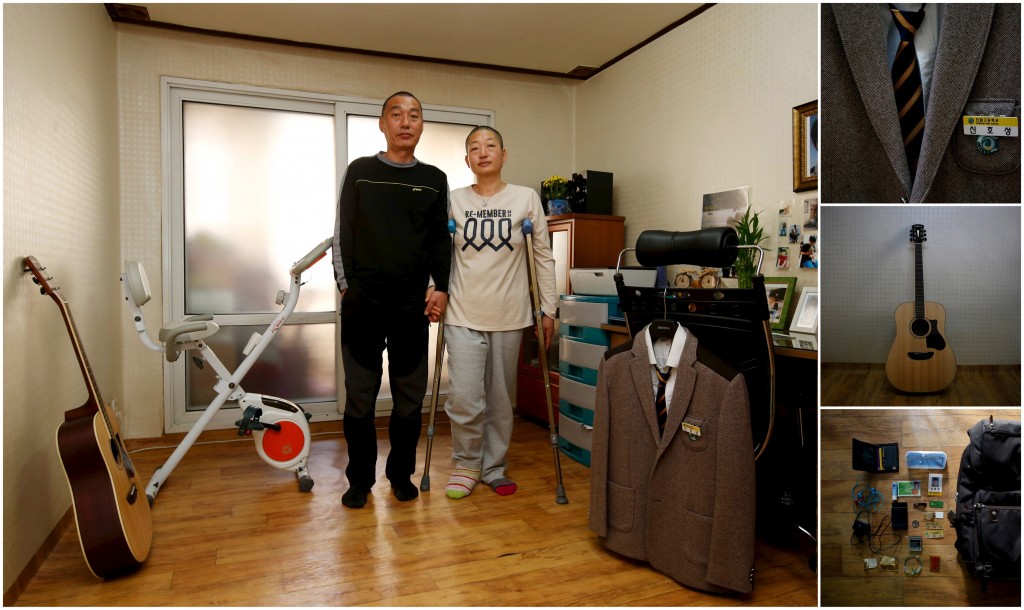
Jung Bu-ja (R) and Shin Chang-sik, parents of Shin Ho-sung, a high school student who died in the Sewol ferry disaster, pose for a photograph in their son’s room, as well as details of objects, in Ansan April 9, 2015. Photo by Kim Hong-Ji/Reuters
“Our children didn’t blame society. They tried hard to save each others lives and worried about their families. Don’t we have to learn from the efforts they showed in the last minutes of their lives?” — Jung Hye-suk, mother of Park Sung-ho
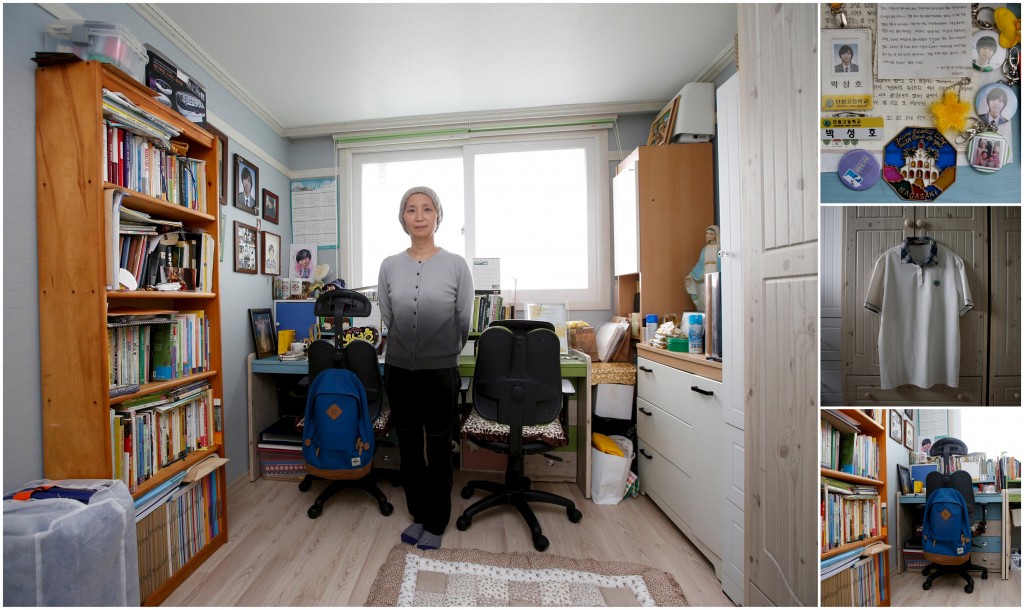
Jung Hye-suk, mother of Park Sung-ho, a high school student who died in the Sewol ferry disaster, poses for a photograph in her son’s room, as well as details of objects, in Ansan April 7, 2015. Jung said: “Good children have died because of adults’ faults. The Sewol disaster taught us about the problems of our society and adults should make efforts to fix them, although its too late. We have to strive to prevent any reoccurrence of this disaster and to build a culture that cherishes human life.” Photo by Kim Hong-Ji/Reuters
“Every relic of our children is still there. I’d like to find them … I’d also like to know the truth and the reason why they were ordered [not] to escape the ferry.” — Eom Ji-yeong, the mother of Park Ye-ji
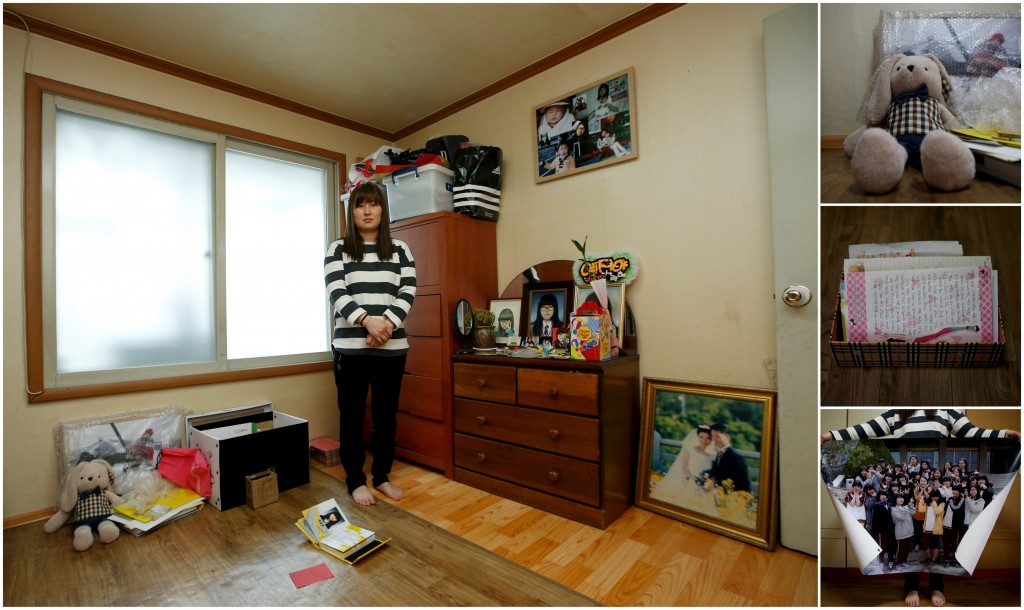
Eom Ji-yeong, the mother of Park Ye-ji, a high school student who died in the Sewol ferry disaster, poses for a photograph in her daughter’s room, as well as details of objects, in Ansan April 8, 2015. Photo by Kim Hong-Ji/Reuters
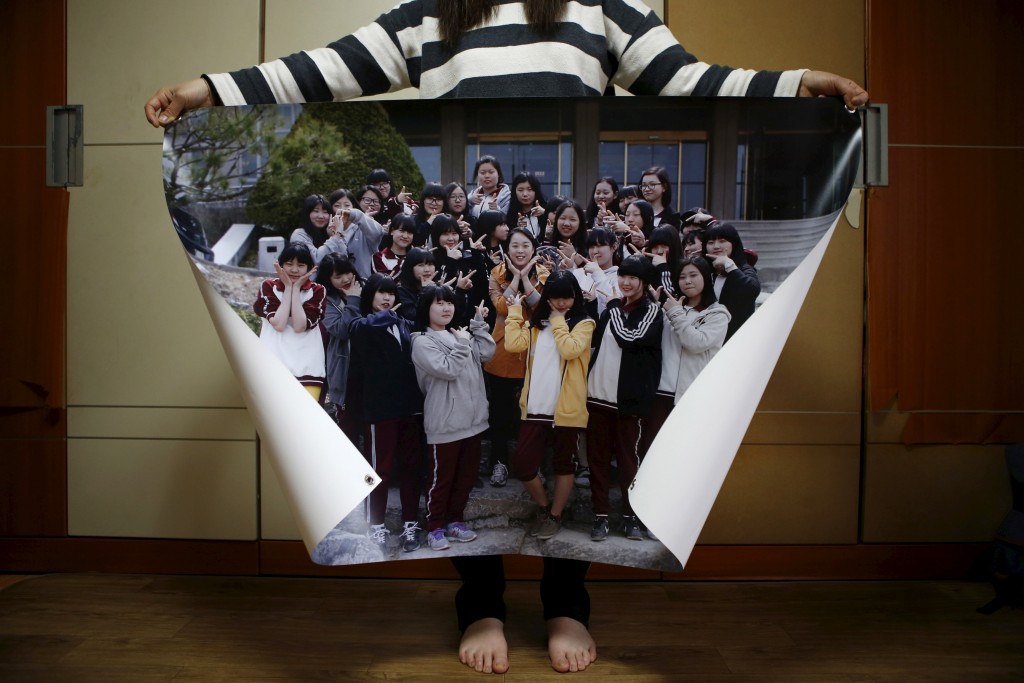
Eom Ji-yeong poses for a photograph with a picture showing her daughter — top row, 4th to the left — with her classmates when she was 15, in her daughter’s room in Ansan April 8, 2015. Her daughter’s dream was to be a computer programmer. Photo by Kim Hong-Ji/Reuters
“I will never give up until I find her. For a year, every day was like that day, April 16, 2014. The times I laughed about trivial things have became precious moments. I thought living an ordinary life was the easiest thing, but I’ve realized it is the hardest thing.” — Park Eun-mi, mother of Huh Da-yoon
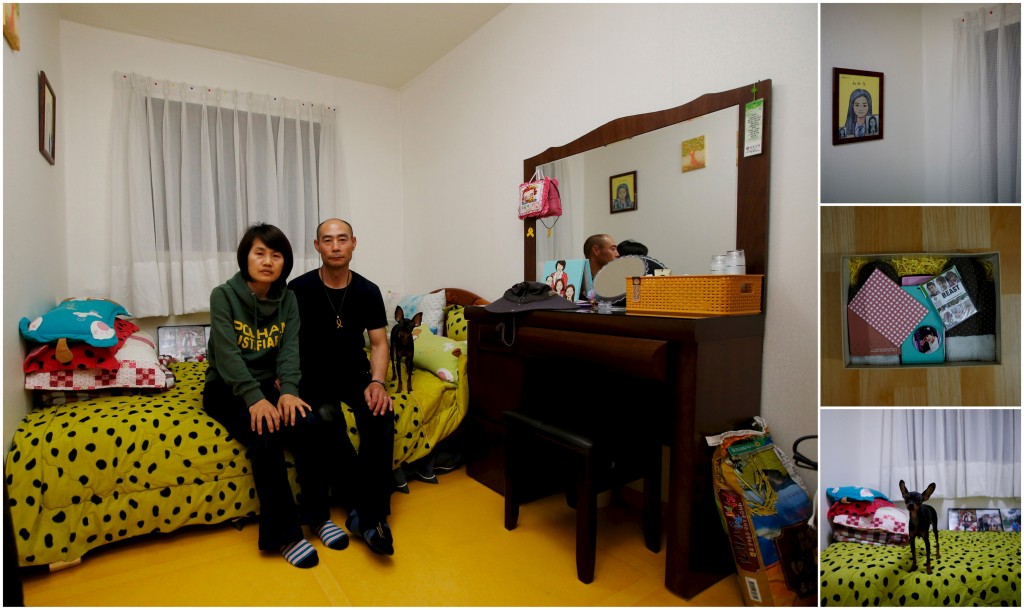
Park Eun-mi and Huh Heung-hwan, the parents of Huh Da-yoon, a high school student who died in the Sewol ferry disaster, pose for a photograph in their daughter’s room, as well as details of her belongings, in Ansan April 8, 2015. Photo by Kim Hong-Ji/Reuters
ncG1vNJzZmivp6x7sa7SZ6arn1%2Bjsri%2Fx6isq2enpL%2BtsI6pn6isn6h6sa3RnqWtq12ks26%2FxLCmpWWWmr%2BzxYyvoJysmaLAbrXNZquhnZmneqS0yKWbq52eqHqzu86mqmatnqm8tq%2FHnptmq5mjsKZ506GcZpyZqK60wMSr